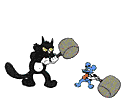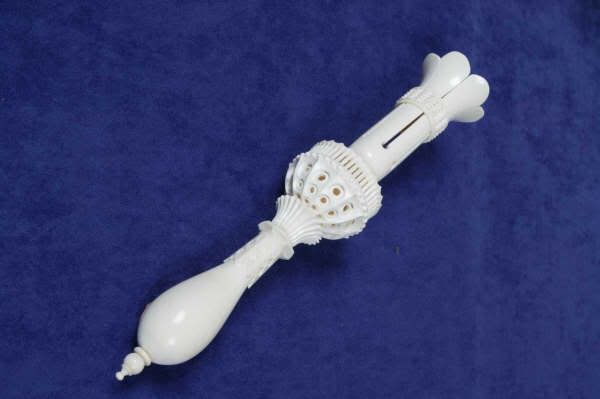Yes, there are some excellent woodturners out there. This doesn't offer a lot of assistance in the pipemaking department, however.
While everyone has their strength, and there are no doubt some pipemakers for whom woodturning is a weak point, the typical pipemaking timbers behave quite differently from the timbers used by most woodturners. Ebony and african blackwood, for instance, prefer techniques that are nearly like "machining" techniques when compared to the behavior of other hardwoods. This means that the highly developed skills of woodturners are not necessarily right for the job without further adaptation... even the turners' tools have to be ground differently for these very dense hardwoods than for other timbers, for best results.
In the end, the amount of time that could be saved by having a woodturner do the "beads" on chanters, regulators, and drones - which is pretty much all the turned stuff - would be a small proportion of the work that goes into a set. For most makers it's not worth the bother of sending stuff out and waiting for it to come back in, etc... and it of course requires a high degree of standardization. Not ideal for a "bespoke" pipemaking service. And how many (good, skilled) woodturners would want to do this work? There are parts of it, like turning thin timber drone slides to fit hand-rolled ferrules, that aren't particularly suited to woodworking lathes either.
In other words, it's a subspecialty within woodturning. Unless a woodturner had a specific interest in pipemaking I don't see a skills fit here.
Now, once upon a time, when ivory and bone ornaments were more common in general (i.e. pre-plastics age), there was a specialist class of craftspeople who did pretty much nothing but ivory and bone turning. There is a belief among a number of pipe historians (presumably with evidence, though I don't know the details offhand) that in the days of the classic pipemakers, some makers did indeed contract out their ivory turning to these specialists. For instance, I have heard several people express the opinion that the famous ivories on the "beehive set" were in fact either third party turnings or, more likely, aftermarket additions, rather than the work of Kenna (who stamped the chanter) or Ryan (who, IIRC, is thought to have made the body of the set). However this craft is now extinct except for the odd[*] hobbyist, who in any case probably doesn't use ivory any more. Bagpipe makers are probably the primary "ivory turners" nowadays, practicing their skills on plastic.
So Rory, you are about 100 years too late, sorry.

Bill
[*] - and I
do mean odd...


